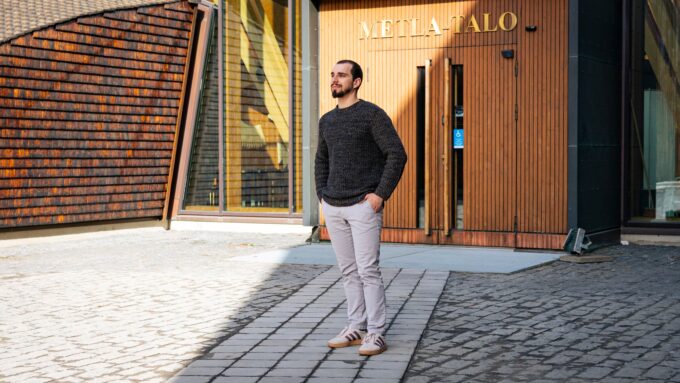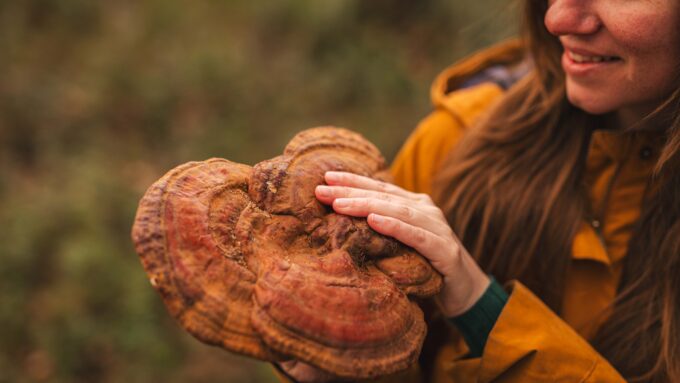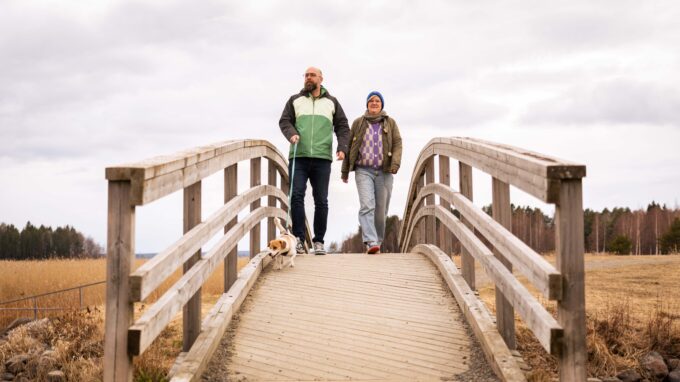Erkki Kukkonen and Niko Salovaara are improving the world one willow at a time.
If someone told you that ordinary willow could be the solution to carbon sequestration, would you believe them? Well, believe it. Erkki Kukkonen and Niko Salovaara, who are studying to become forestry engineers, have refined the idea into a company and founded Karelian Paju Oy.
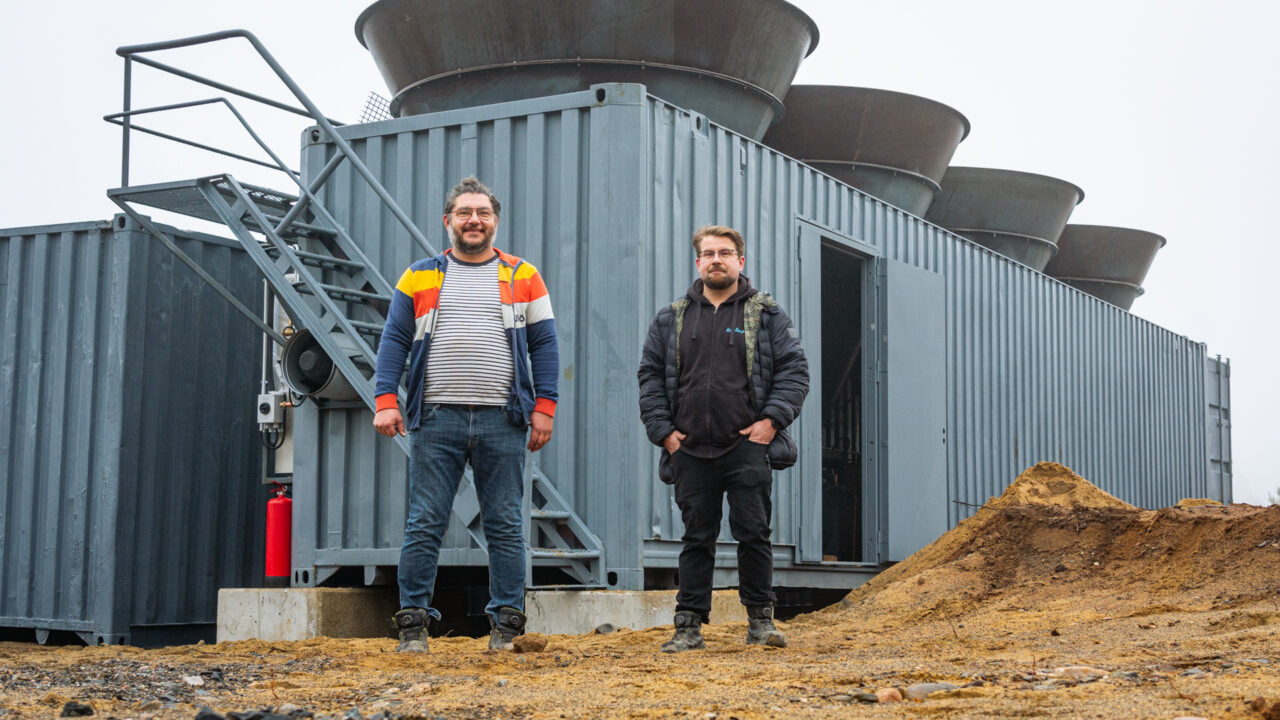
Kukkonen and Salovaara, who are in their fourth year at Karelia University of Applied Sciences, had already spent a good deal of time in the career world before switching fields: Salovaara 15 years in healthcare, Kukkonen 20 years in manufacturing. At some point, they both started to think that they had seen enough, and it was time to study again.
During studies, the idea of starting their own business was born, based on mutual interest in growing willow for energy production. Willow turned out to be a difficult crop to grow, but the duo soon discovered a new and better use for it; willow provides an excellent raw material for biochar production.
Willow is known as a high quality biochar feedstock, which attracted the company to turn its focus to biochar. Biochar production has good business potential, but equally important is its link to sustainable development and climate work.
This is an action in line with our values and something we can stand behind
–This is an action in line with our values and something we can stand behind, Salovaara sums up.
As a first step, they participated in the Start Me Up business idea competition organised by Business Joensuu in 2022, where their project won a student prize. The recognition brought credibility and proved that the idea had potential.
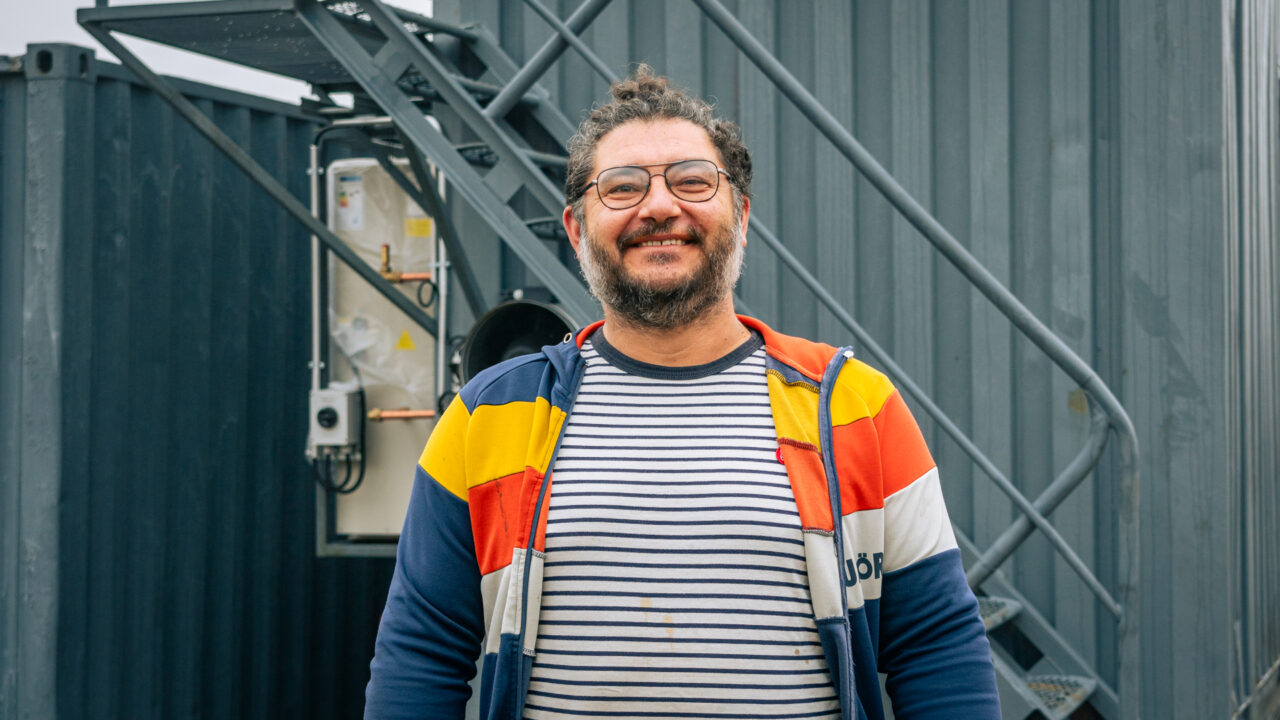
From filters to pigment
Biochar is a material that is produced from, for example, wood or plant waste by heating them without oxygen. It is rich in carbon and has many useful properties.
In particular, biochar is used to improve soil quality because it binds water and nutrients and stores carbon in the soil for long periods of time. It can also be used in filters to purify water and air, and can be useful in industry and energy production.
Kukkonen and Salovaara’s business idea is precisely based on the fact that biochar products can support long-term carbon sequestration from the climate. They are involved in projects that explore new ways of using biochar, such as in rainwater treatment and in various growing media for plants.
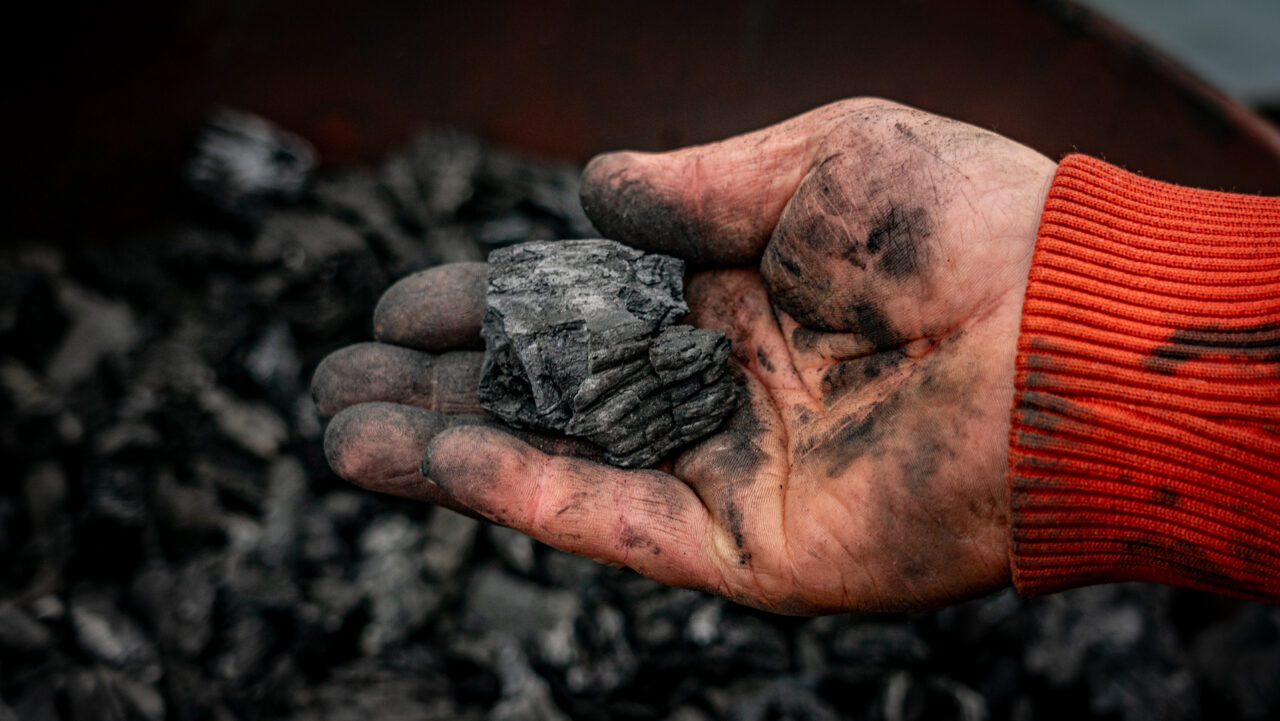
Karelian Paju’s product range includes high-quality biochar products from fine powder to coarser granules.
The traditional use of biochar as a soil improver provides an optimal nutrient and water uptake substrate for plants, but Karelian Paju Oy is also targeting the market for filtration and ecological black pigments.
Competitive advantages include not only solid know-how but also the high carbon content and low ash content of the biochar produced by the company. The quality is based on carefully selected raw materials.
–In our products, the carbon content exceeds 95% and the ash content remains low, around a couple of percent, says Salovaara.
The freedom to do things and to do it for oneself are also the best aspects of entrepreneurship.
Help has been available
Entrepreneurship has also brought challenges, especially for students with no previous entrepreneurial experience. Erkki Kukkonen and Niko Salovaara have had to — or have been able to — learn many entrepreneurial skills from the start, including financial negotiations and financial management.
All this has been greatly helped by the Start coaching offered by Business Joensuu. The coaching was followed by access to the business accelerator. Through this, important networks have also been established.
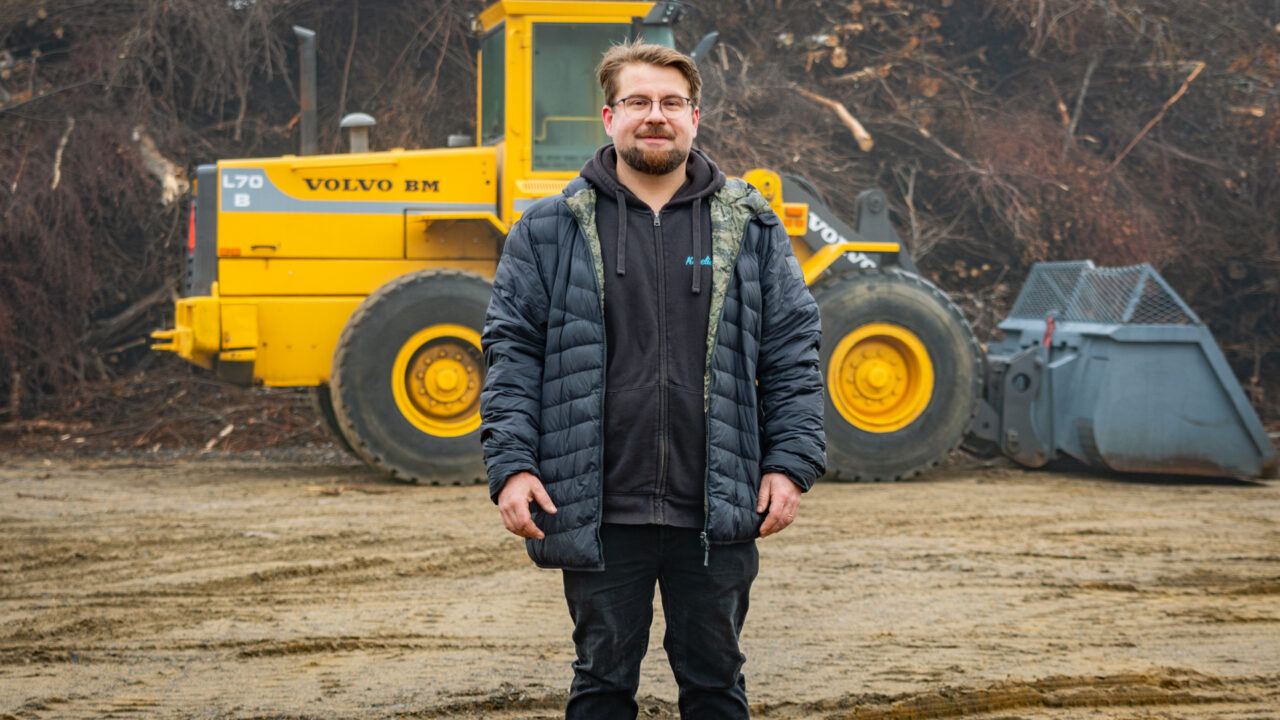
In the early stages, for example, the financial issues have been a lot of work, and it has taken time to get to grips with the finances. To get funding, Kukkonen and Salovaara used a variety of instruments, including EU and Ely subsidies, a guarantee from Finnvera and private investors.
According to investor Antti Korhonen, the arrival was an important turning point, as Korhonen brought not only capital but also his labour to the company. This has helped Kukkonen and Salovaara not only to build the company, but also to implement larger development projects.
Phone booth as an office
Combining studies and business has not been easy, but in the beginning Kukkonen and Salovaara were able to work flexibly and make use of breaks between lessons. They even used the school’s phone booths as office space before they had an actual office.
The next step was bigger when the company’s first major projects started and the company received Ely support. In the last year of study, managing schedules required more organizing and flexibility, and school had to take the back seat.
–We are trying to organize the first test runs for our new equipment in the near future, and the school isn’t currently the priority, says Kukkonen.
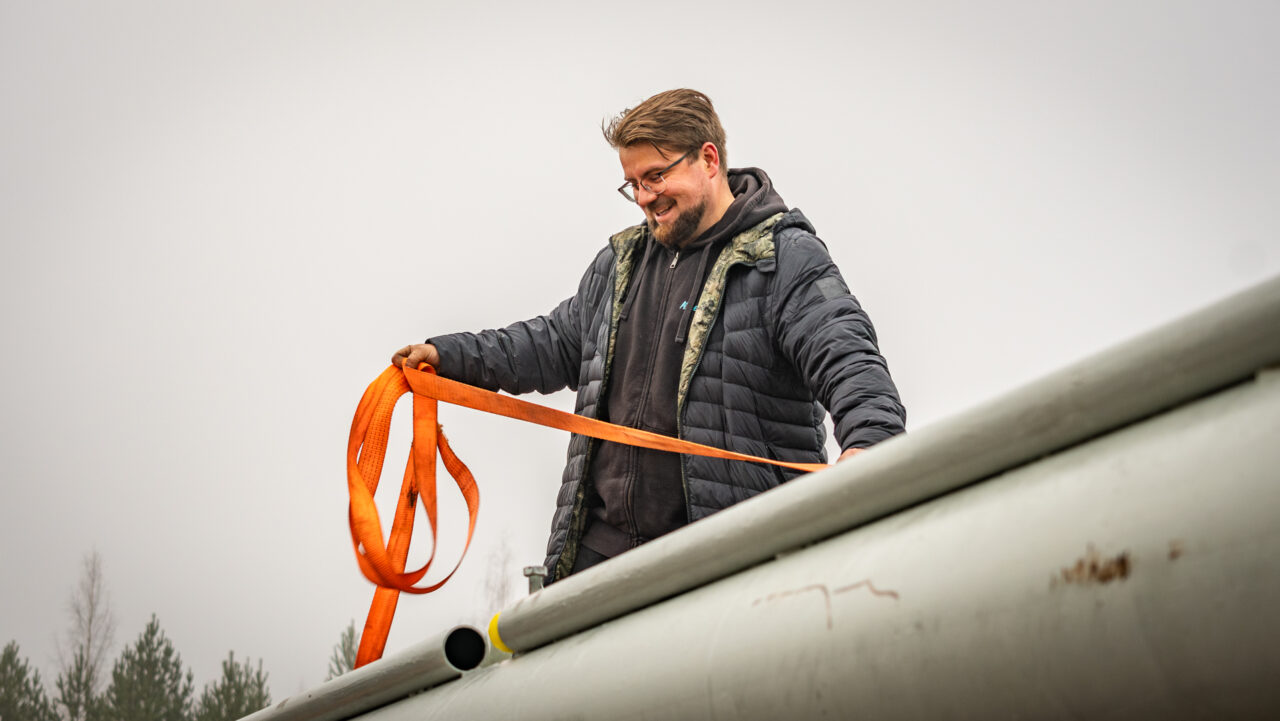
–But fortunately, the school has also realized that we are now forced to be a bit flexible about our studies, Salovaara adds.
However, the men have gained a lot of useful information from their studies, which they have been able to use in their business activities. Their education as forestry engineers has helped them to grasp the big picture and has, among other things, supported the practical organisation of their business.
In addition, the forestry engineering studies included entrepreneurship courses, which provided the men with the basic knowledge and skills to start a business.
Both entrepreneurs take great pride in the fact that their business not only offers a profitable earning logic, but also supports sustainable development and contributes to the fight against climate change.
First Finland, then Europe
Kukkonen and Salovaara believe that their biggest successes are still to come. The company’s development is well underway and the first equipment for full-scale production is due to be commissioned soon.
Kukkonen and Salovaara will focus on starting up production in Finland, but the aim is to scale up and become a major player in both quantity and quality, both in Finland and Europe. The need for carbon capture is growing rapidly to mitigate climate change — especially as the latest measurements show that carbon dioxide emissions have risen to record levels.
While the European market offers great potential for expansion, overseas expansion is not yet a reality. Demand for biochar is growing and international trading platforms are on the horizon.
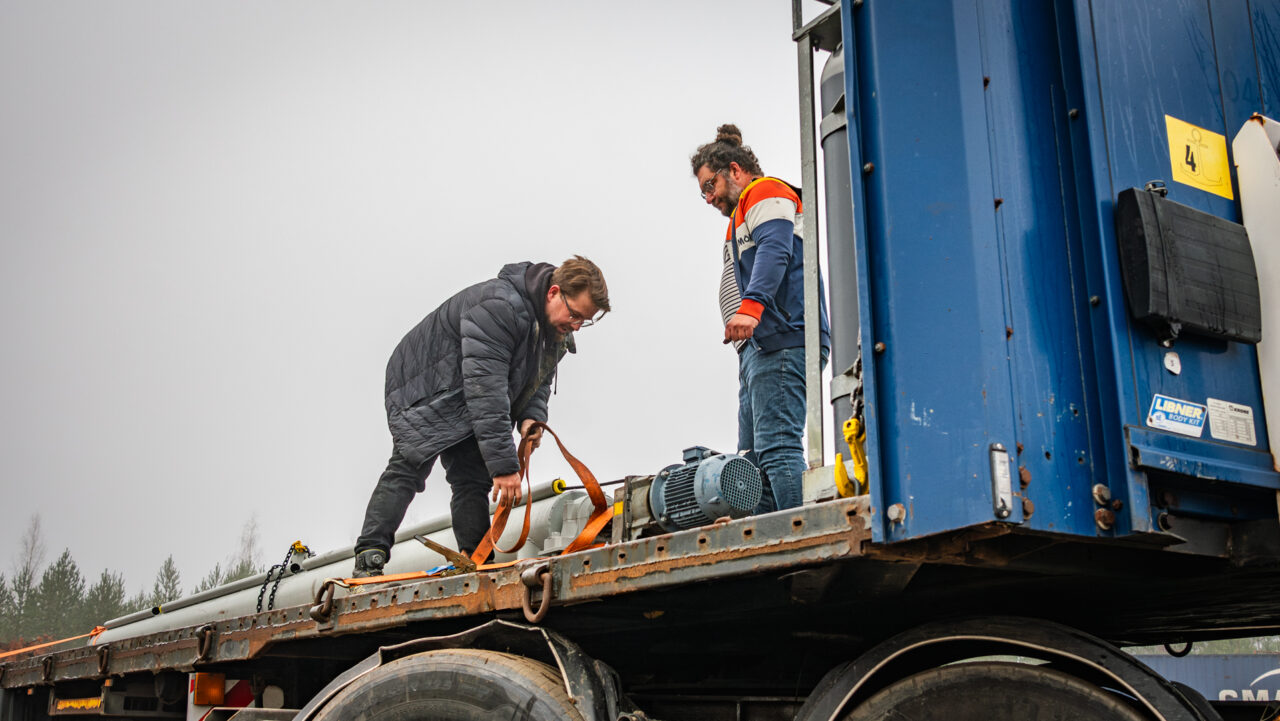
Kukkonen and Salovaara see increasing the number of production units in the coming years as the best way to meet the needs of both industry and society to build a more sustainable future.
Over the past few years, both production methods and products have evolved a lot, and development work is continuing at a rapid pace. Nevertheless, the current situation is only an interim step for the company.
–The focus is now on certainty, and from here we will move on to refinement. Once everything has been tested, the combustion chamber itself, the pyrolysis chamber, will become more closed and precise, says Salovaara.
Both entrepreneurs take great pride in the fact that their business not only offers a profitable earning logic, but also supports sustainable development and contributes to the fight against climate change.
–The freedom to do things and to do things for oneself are also the best aspects of entrepreneurship, says Erkki Kukkonen.





This material was produced as part of the activities of the City of Joensuu Innovation Ecosystem Agreement (ERDF), co-funded by the European Union and the city of Joensuu.


